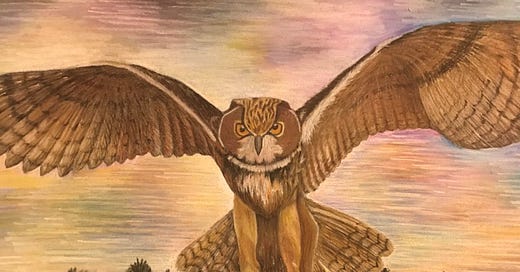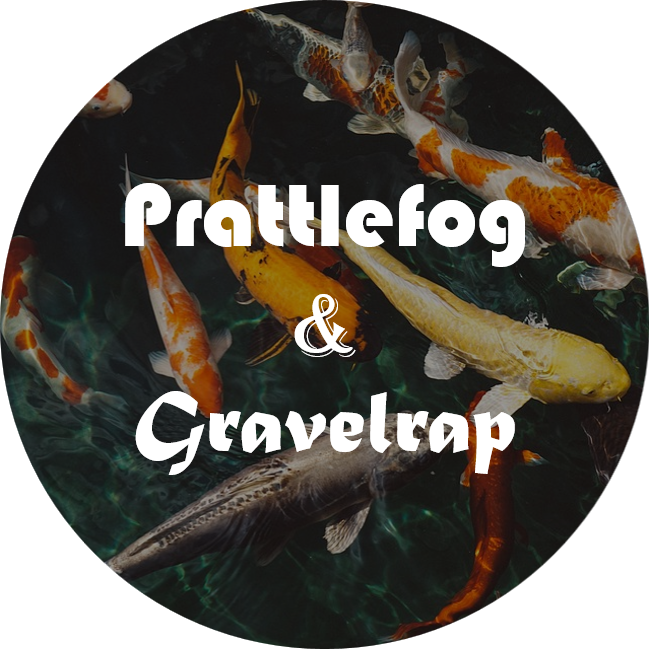In this session of Writer to Writer, Matt Kendrick answers questions from our co-EIC Laura Cooney about writing, inspiration, and the importance of meaning.
Matt is a writer, editor and teacher based in the East Midlands, UK. His work has been featured in various journals and anthologies including Craft Literary, Best Microfiction, The Best Small Fictions, and the Wigleaf Top 50. You can find him on Twitter at @MkenWrites, and discover the many courses, services and resources he offers writers at https://www.mattkendrick.co.uk/
Matt is also on Substack:
Laura: When or why did you start writing?
Matt: I think I’ve always written stories, ever since I was very little, but I first started taking writing seriously when I developed a long-term health condition and wanted something creative to help distract me from everything that was going on with my body. It wasn’t long before I discovered flash fiction and became fascinated by the idea of telling a complete story in a tiny space.
How often do you write?
Writing, for me, is something that fits into the cracks between my work and illness. Sometimes, I manage to write every day, but there can also be times when I don’t write words on the page for weeks at a time. But for me, the act of writing encompasses so much that doesn’t involve putting words on the page. Writing is also thinking about writing, it is coming up with ideas, observing the world, squirreling away an interesting body language trait or turn of phrase. So, in that regard, I’m always writing. I find that’s a comforting way of framing it that means I’m always achieving something with my writing even if it’s not necessarily adding to the word count.
What’s the best advice you would give to new writers?
Hannah Grieco recently posted a tweet about treating any piece of writing advice as an opinion rather than a fact, and I’m going to pinch that and build on it slightly. New writers can be like sponges. We hear “write what you know” and “the road to hell is paved with adverbs” and we take these as hard and fast rules. But “write what you know” can be limiting (I always prefer flipping it around to “know what you write”); sometimes an adverb is exactly (!) what we need. It’s great to gather up advice from other writers or writing teachers, but at the end of the day, each of us needs to find the rules that work for us. Writing is subjective. Even things that feel like they should be incontrovertible are often not. Maybe the best advice I could give is to extend my “know what you write” into “know what you want to write”; and once you have that, maybe extend it again to include the need to “put it on the page in a way that meets your intent.”
What is the most surprising thing you’ve learned about being a writer?
One key thing I’ve learned about being a writer, and one thing I notice in all the writers I work with as a teacher and an editor, is that the act of writing makes us much more versatile in how we view the world. As writers, we inhabit different viewpoints and spend a lot of time thinking about character motivations and why a certain person might act the way they do. So, I think that makes us more empathetic and hopefully means we understand that most things in life aren’t black or white; most things exist in those shades of grey.
Who is your favourite author?
Picking one author always feels like an impossible task, especially when, like me, you’re drawn to different forms and genres. Novellists who I come back to time and time again are Margaret Atwood, Maggie O’Farrell, Kazuo Ishiguro, David Mitchell, and Kamila Shamsie. I’m also a big fan of both Madeline Miller and Susanna Clarke. As far as flash fiction is concerned, we could be here all day. The wonderful thing about flash is its brevity and that gives so many different writers a moment in the spotlight. Each and every day, I’m blown away by what is getting written and published—I’m sure the pieces you’ve included in the first edition of Frazzled Lit are no exception.
If you could spend a day with another writer, who would you choose?
This is a pipe dream for me as someone who is pretty much housebound most of the time, but writers are good at living inside their dreams, so I’ll pick an event rather than a person. I would love to be well enough to attend the Flash Fiction Festival which is held annually in Bath or Bristol. There are so many writers who go there each year who I would love to spend the day with.
Given that you’re a fan of so many different writers, styles and genres, how do you go about deciding what to read?
I tend to always have a novel on the go, alternating between writers I’ve read before and new-to-me writers, and I try to read a book-in-translation once a month. This gives me the rich variety I enjoy and also informs my work as an editor. With flash fiction, I again like to read a smattering of writers I already know alongside new-to-me writers. Therefore, I tend to dip into different journals rather than necessarily watching out for what gains traction on social media. One day I might sit and read the whole issue of SmokeLong Quarterly, the next I might read through the latest pieces in the Wigleaf archive. If you read in that way rather than sticking to writers you already admire, you’re exposed to a greater variety of forms and approaches.
Do you draw inspiration from what you read?
Definitely. I often find myself with a new story idea directly prompted by something I’ve read. This might be a narrative framework, a technique, a character, or a voice. The piece you’ve kindly published in this first edition of Frazzled Lit came about after I read “Room” by Emma Donoghue and wanted to explore writing a story from a child’s point of view. I’ve since written three other pieces that continue on the narrator’s story at later moments in his life each told with the same distinct tone of voice.
What else do you draw inspiration from?
Currently, I’m drawing inspiration from proverbs and sayings. Every story I write has an adage at its heart, whether that’s “there’s no point crying over spilt milk” or “a journey of a thousand miles begins with a single step” (which is the one that inspired my Frazzled Lit story, beyond. This can be challenging and risks perhaps always leading toward stories that have a similar arc or tonal feel, but it also means there’s an in-built sense of message. When thinking about literary fiction, I think that can often be an element to the story that writers overlook. We have the surface layer of what actually happens in the narrative, and we have the emotional layers underneath, but I always feel as though a literary story is at its strongest when there’s a sense of message in there as well. What is the story telling us about the world? What is that nugget of truth?
Is there a reason you’re currently so focused on proverbs and sayings?
It’s all to do with a project I’m working on. The project is perhaps slightly barmy, but I’m writing a novel in which the central character writes short fiction, and to get fully inside that character’s head, I’m writing all the stories that he writes. When everything is finished, I’m hoping I’ll end up with two books—a novel and a collection of flash fiction—that mirror each other and connect together in interesting ways. There’s also a third element to the project which I’m envisaging as a sort of online museum that will showcase artistic interpretations of the stories and sayings. Sometimes, this might be a piece of visual art, sometimes it might be a piece of music I’ve written, and sometimes it might be something else entirely. It’s a lot of fun working from these different angles, but it’s also a big undertaking which at my current pace will probably take me several hundred years!
Speaking of finishing a project, how do you celebrate when you do finish a project?
I don’t have a particular thing I do (I can’t eat cake or drink alcohol, so I sometimes feel slightly limited on the celebration front!) but I think it’s important to celebrate the act of writing (and not just the success of publication or awards etc.) This is something we have full control over rather than something we don’t. Sometimes, we can be in too much of a rush to take the next step up the metaphorical mountain of our writing journey, but I always say to writers that it’s a good idea to pause after our successes, to turn around and admire the view.




